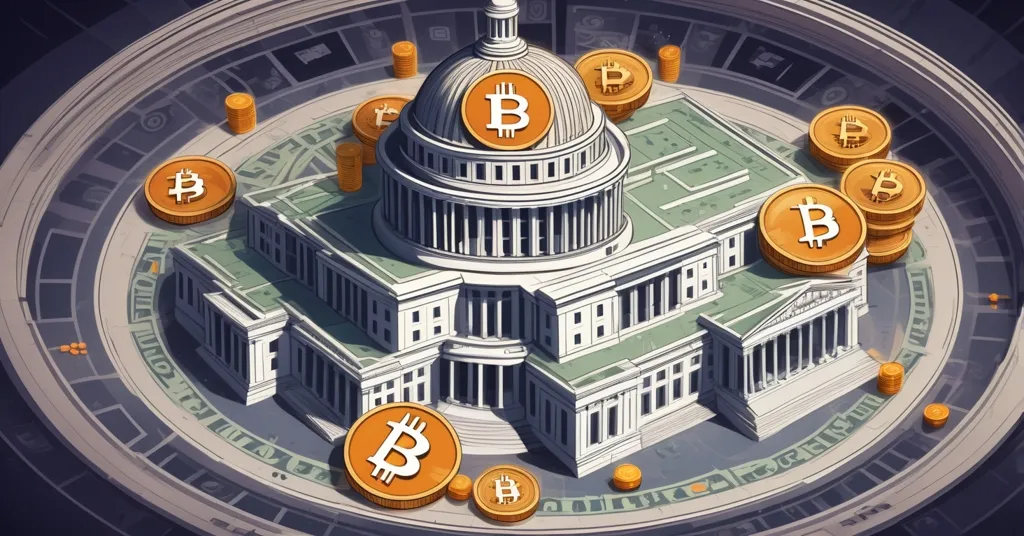Minnesota Senator Proposes Bitcoin Act: State to Invest in Crypto

Minnesota Senator Proposes Groundbreaking Bitcoin Act
“As he did an extensive research on cryptocurrency, he has gone from ‘being highly skeptical to learning more about it, to believing in Bitcoin and other cryptocurrencies,'” stated Minnesota State Senator Jeremy Miller. This powerful shift in perspective from one of the state’s lawmakers underscores a broader acceptance of digital currencies, now reflected in the proposed Minnesota Bitcoin Act.
- Minnesota Bitcoin Act introduced by Senator Jeremy Miller
- State to invest in Bitcoin and other cryptocurrencies
- State employees can include cryptocurrencies in retirement accounts
- Bitcoin payments allowed for state taxes and fees
- Cryptocurrency investment gains exempt from state income taxes
Senator Miller’s proposal, introduced on March 18, marks a significant step toward integrating cryptocurrencies into state financial systems. The Minnesota Bitcoin Act aims to enable the state to treat digital currencies as traditional investment assets, empowering the Minnesota State Board of Investment to allocate public funds into Bitcoin and other cryptocurrencies. This move not only acknowledges the potential of Bitcoin as an investment vehicle but also offers state employees a chance to diversify their retirement accounts with these digital assets.
The Act goes further by proposing that residents can use Bitcoin to pay state taxes and fees, a practice already adopted by Colorado and Utah. Moreover, it seeks to exempt cryptocurrency investment gains from state income taxes, potentially incentivizing more residents to engage with digital assets. This could stimulate local economic activity by encouraging investment in cryptocurrencies, which have demonstrated remarkable performance. From August 2011 to January 2025, Bitcoin’s compound annual growth rate (the average yearly growth rate that would turn an initial investment into its ending balance) was over 100%, far surpassing the S&P 500’s 14% during the same period, according to data from Curvo.
Minnesota’s initiative aligns with a growing trend across the United States, where 23 states have introduced bills to create Bitcoin reserves—a state’s official holdings of Bitcoin, similar to how countries hold gold reserves. This push at the state level is bolstered by federal efforts, such as Senator Cynthia Lummis’s Strategic Bitcoin Reserve Act. Initially, Lummis proposed purchasing 200,000 Bitcoin annually for five years, but the proposal has since been revised to a potential holding of over 1 million Bitcoin. These legislative efforts signal a coordinated move to integrate cryptocurrencies into the financial system on multiple governmental levels, reflecting the growing mainstream acceptance of digital currencies. At the time of the proposal, Bitcoin’s price stood at $83,350, with the total market cap of cryptocurrencies reaching $2.69 trillion.
While the optimism around Bitcoin and cryptocurrencies is palpable, it’s essential to acknowledge the challenges and risks. The volatility of crypto markets can turn your dreams of buying a yacht into a frantic search for spare change under the couch cushions. Regulatory uncertainties loom large, and the need for robust infrastructure and security measures to manage these assets is critical. Yet, the potential benefits—including economic growth and financial innovation—are what drive advocates like Senator Miller. Balancing these risks with the promise of digital currencies requires a nuanced approach, one that champions decentralization, freedom, and privacy while remaining vigilant about the dangers of scams and unrealistic promises.
As supporters of Bitcoin maximalism, we recognize the unique role BTC plays in this financial revolution. However, it’s equally important to acknowledge the contributions of altcoins and other blockchains, like Ethereum, which fill specific niches that Bitcoin might not serve. These technologies enrich the broader ecosystem, fostering a diverse and resilient financial landscape.
Key Takeaways and Questions
- What is the Minnesota Bitcoin Act?
The Minnesota Bitcoin Act is a proposed piece of legislation that would allow the state to invest public funds in Bitcoin and other cryptocurrencies. It also enables state employees to include cryptocurrencies in their retirement accounts and permits Bitcoin payments for state taxes and fees.
- Who proposed the Minnesota Bitcoin Act?
Minnesota State Senator Jeremy Miller proposed the Minnesota Bitcoin Act.
- How does the Minnesota Bitcoin Act change Senator Miller’s stance on cryptocurrencies?
Senator Miller’s stance shifted from being highly skeptical to supportive of Bitcoin and other cryptocurrencies after extensive research.
- What are the key provisions of the Minnesota Bitcoin Act?
The key provisions include allowing state investments in cryptocurrencies, permitting state employees to include cryptocurrencies in retirement accounts, allowing Bitcoin payments for state taxes and fees, and exempting cryptocurrency investment gains from state income taxes.
- How does Bitcoin’s performance compare to traditional investments?
From August 2011 to January 2025, Bitcoin showed a compound annual growth rate of over 100%, compared to the S&P 500’s 14%.
- What federal efforts are being made regarding Bitcoin?
Senator Cynthia Lummis proposed the Strategic Bitcoin Reserve Act, which calls for the federal government to buy 1 million Bitcoin every year for five years.
- What is the current market cap of cryptocurrencies?
At the time of writing, the market cap of cryptocurrencies stood at $2.69 trillion.
- What is the current price of Bitcoin?
At the time of writing, Bitcoin’s price was $83,350.
- How many states have introduced bills to create Bitcoin reserves?
According to Bitcoin Laws, 23 states have introduced such bills.
- Which states currently accept Bitcoin for tax payments?
Colorado and Utah currently accept Bitcoin for tax payments.
In the spirit of disrupting the status quo and embracing effective accelerationism (e/acc), initiatives like the Minnesota Bitcoin Act signal a push towards a future where digital currencies can contribute to financial prosperity. However, as we navigate this revolution, we must remain wary of the pitfalls and work diligently to create a secure and sustainable environment for these innovations to flourish.



